Researcher Protecting Rare Carp in Qinghai Lake
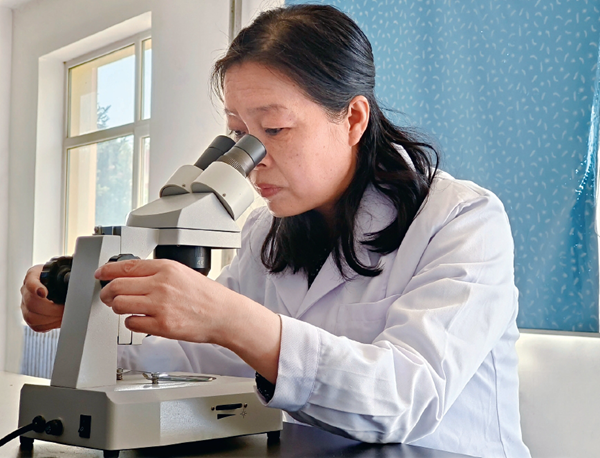
Naked carp, known as "Huangyu" in China, is endemic to Qinghai Lake (China's largest inland saltwater lake), which is situated in Northwest China's Qinghai Province. The fish is not only critical to the existence of local bird species, but also significant to the ecological balance of the highland lake. Qi Hongfang is deputy director of and researcher with the lake's naked carp rescue center. During the past three decades, Qi has made an all-out effort to protect the species of naked carp, and to monitor the lake's ecological environment.
Qi was elected a delegate to the 20th National Congress of the Communist Party of China (CPC). On October 22, 2022, she spoke about the ecological protection of Qinghai Lake, during an interview at the Great Hall of the People, after the 20th CPC National Congress had concluded.
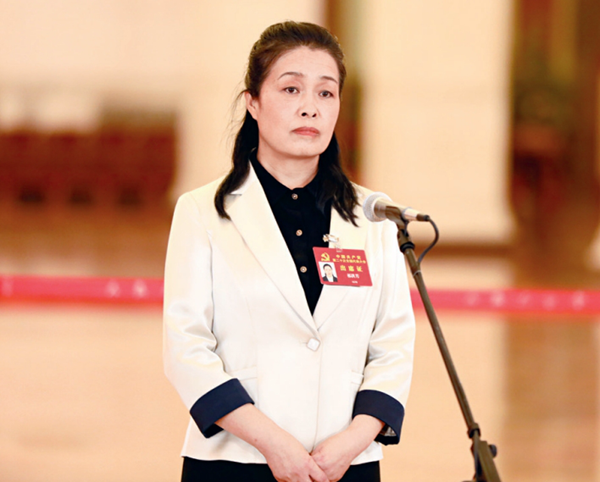
"Qinghai Lake is one of the most beautiful lakes in China. Naked carp is the only species of large-sized fish in the lake. Due to overfishing and environmental deterioration, the carp was listed as an endangered species, on the China Species Red List, in 2004," said Qi. "During the past decade, our center has taken protective measures … in many aspects. Now, the lake has more than 100,000 tons of the carp, an increase of 42 times compared with 20 years ago. The ecological environment has improved greatly in the lake area."
Three Decades of Protection
Qi was assigned to work at the naked carp rescue center in 1993, after she graduated from Southwest Agricultural University (a predecessor of Southwest University). At that time, she witnessed how thousands of carp migrated upstream, to spawn in the freshwater rivers (that flow into Qinghai Lake), for the first time.
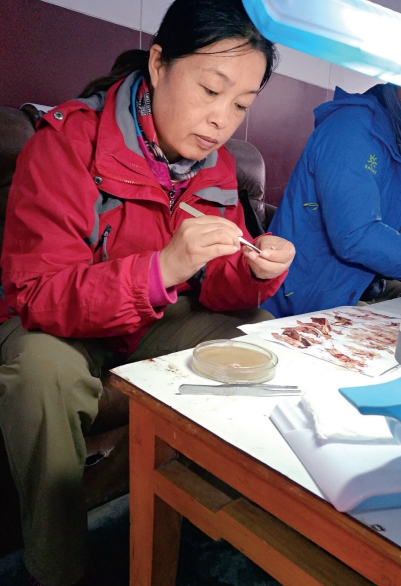
She was shocked by the rare scene of carp migration in the rivers, which are the species' main breeding sites. "From late May to early June, adult carp gather, and they embark on a dangerous journey to breed. They swim upstream, leaping over dams and boulders. Their migration may be cut short anytime by flocks of birds. But, even so, the carp spare no effort to move forward. I was immediately attracted by the species," says Qi.
The carp, which are native to Qinghai Lake and its tributaries, are crucial for the ecological balance of the lake. In 2000, the lake had fewer than 3,000 tons of carp. During past decades, Qi and her colleagues have dedicated themselves to the protection of the carp. "The protection work requires great patience and perseverance. At the beginning, we worked and lived in the wild for a long time. We lived in tents, and we drank river water. However, no one complained about the arduous conditions," recalls Qi.
In 2001, Qi and her colleagues installed more than 200 stones along the shoreline of the lake, to measure the lake's relevant data. Since then, Qi has led her colleagues in measuring the lake annually — including measuring the area, depth and volume of the lake — to learn about the conditions of the carp's habitat.
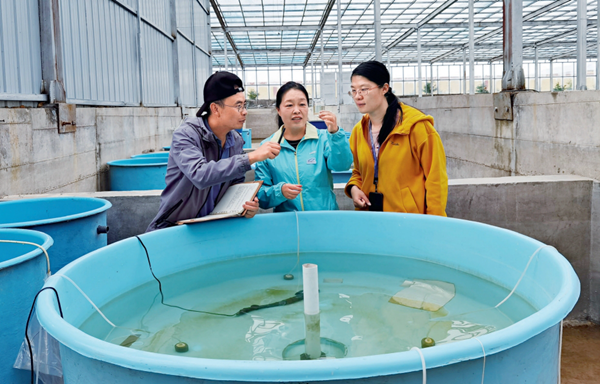
Every August, Qi and her colleagues monitor, by ship, the resources in the lake. Each time, they live on the ship for five or six days. They use underwater sonar-detection technology to monitor the carp at 24 spots in the lake. They have to overcome seasickness and rough, unpredictable weather. During the past decades, Qi has encountered danger several times. However, she never thought of giving up. She is committed to doing the ecological-protection work well.
"One night, in 2005, a sudden storm broke the anchor chain of the monitoring ship. The four-meter-high waves blew the ship, from the roadstead, to a submerged reef, which was more than 300 meters away. The cabin was flooded … I hurried to call everyone to put on a life vest and to squat on the deck, to prevent themselves from being swept into the lake. At that time, we were in a desperate situation. Fortunately, staff from the local fisheries administration managed to help us escape danger," recalls Qi.
As a result of the dangerous occurrence, someone suggested canceling the monitoring work, or conducting the work every few years. However, Qi firmly opposed the suggestion. She said she believed a CPC member should play an exemplary role in working on the front line. Since then, she has led a team in conducting the monitoring work every year. Qi and her colleagues have established a continuous carp monitoring system, which provides a scientific basis for the government's policymaking on fishing bans in the lake.
For her efforts, Qi has been awarded the National May 1 Labor Medal, and she has been named a provincial-level excellent expert.
Breeding Carp
The rescue center has bred (through artificial means) the rare carp, to help recover the quantity of the species. Qi and her colleagues have played the role of "fertility doctor" for the carp. In recent years, they have collected sperm and spawn, separately, from the male and female fish, and they have fused the sperm and spawn. They have helped incubate the fertilized spawn. Under their care, for about 150 hours, fish fry hatched. Every year, the center releases 20 million fish fry into the lake and its tributaries.
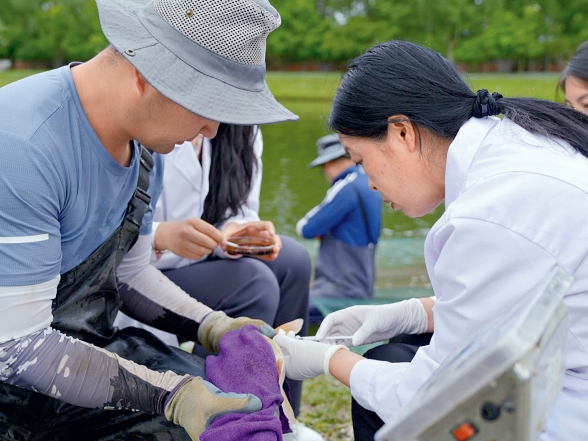
In recent years, Qi has participated in several scientific-research projects involving artificial-breeding technology of the carp in fresh water. She and other researchers have conducted numerous experiments, in ponds and reservoirs, for many years. After years of experiments, they have mastered the key artificial-breeding technology. Given their efforts, the carp can now survive and grow in fresh water, which is efficiently helping the species recover.
In 2002, the quantity of carp in the lake was about 2,600 tons. In 2022, the quantity was 114,100 tons, of which 23 percent was bred and released by the center. As a result of that increase, the ecological environment of the lake has been continuously improved.
The improving ecosystem has benefited migratory birds. The lake has become a key wintering habitat for more species of migratory birds. Some 232 species of birds were detected in the lake area in 2022, an increase of 68 species during the past two decades. Also, the number of birds has increased from 100,000 to 600,000. The carp-protection efforts have greatly boosted biodiversity in the lake area.
Staying True
Qi returned to Qinghai, from Beijing, after the 20th CPC National Congress concluded in October 2022. Since then, she has given several lectures — on conveying the spirit of the key CPC congress — to her colleagues. "I have studied every sentence of the report to the congress carefully … I took notes of the report's key points, especially on the aspect of pursuing green development, and promoting harmony between humanity and nature. Then, I conveyed the spirit to my colleagues, based on my work experience," says Qi.
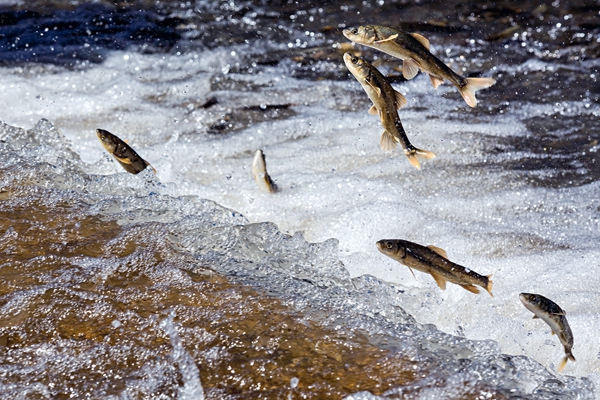
When she exchanged views on the spirit of the congress, with her colleagues, she said, "In recent years, we have taken several protective measures, and the carp resources have recovered effectively. In the future, we should continue to undertake the mission of the lake's ecological protection, and we should make more efforts to improve the lake's potential ecological-value."
China approved the establishment of a national park at the lake in June 2022. The park is planned to be established in the next year. "It is of great importance to protect the carp, the key species in the lake area. We should cooperate with relevant institutes, to strengthen scientific research of the carp, and to promote the lake's ecological-protection work," Qi says.
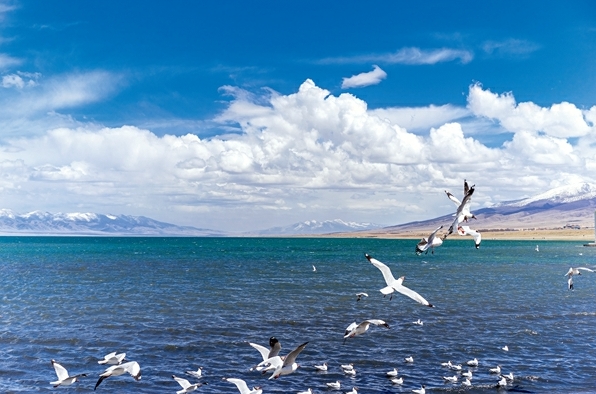
Qi has inspired her team. "I am deeply encouraged by Qi's lecture … Apart from the carp's breeding and protection work, we also need to promote the importance of ecological protection among locals, who live in the lake basin, so more people will participate in the protection of the carp and the lake's biodiversity, to promote harmony between humanity and nature," says one of the center's employees.
Qi vows to do everything in her power to protect the lake. "I am only an ordinary ecological-protection worker in Qinghai. During the past decades, I have only done my duty well. Ecological-environmental protection is among our country's most fundamental interests. The province's ecological environment is getting better and better, year by year. The carp strive to migrate upstream, no matter how fast the rivers flow. In the future, I hope to work hard and strive for success, like the carp. I will contribute my strength to the lake's ecological protection and high-quality development," says Qi.
Source: Qinghai Women's Federation
Photos Supplied by Interviewee, VCG and Tuchong
(Women of China English Monthly October 2023 issue)
Please understand that womenofchina.cn,a non-profit, information-communication website, cannot reach every writer before using articles and images. For copyright issues, please contact us by emailing: website@womenofchina.cn. The articles published and opinions expressed on this website represent the opinions of writers and are not necessarily shared by womenofchina.cn.








.jpg)

 WeChat
WeChat Weibo
Weibo 京公网安备 11010102004314号
京公网安备 11010102004314号